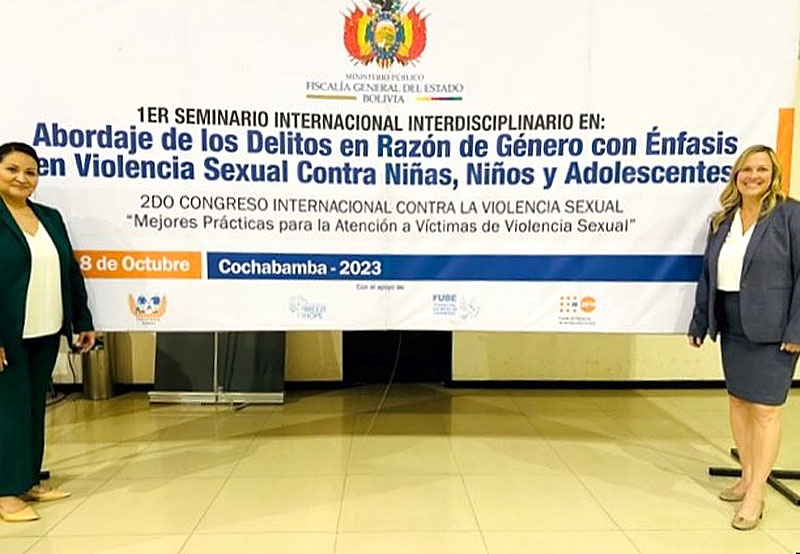
Key message: Child’s word is sufficient evidence of abuse
Two employees of the Kane County State’s Attorney’s Office recently traveled to the South American country of Bolivia to address hundreds of judges, prosecutors and medical and mental health officials at a national conference on sexual violence against children.
Assistant State’s Attorney Lori Schmidt, the executive director of the Kane County Child Advocacy Center, and Silvia Cruz, the CAC’s multidisciplinary team coordinator and outreach prevention specialist, spent four days in Cochabamba, Bolivia. The conference, which was called the International Interdisciplinary Seminar on Addressing Gender-Based Crimes with a Focus on Sexual Violence Against Children and Adolescents, was held to help Bolivian officials assure justice and recovery for young survivors of sexual violence.

ASA Schmidt spoke to attendees about the intricacies of investigating and prosecuting child sexual abuse cases. Mrs. Cruz talked about the importance of child advocacy centers and multidisciplinary teams, and their roles in investigating, prosecuting and victim advocacy in child sex abuse cases. In addition, she served as a translator. The pair presented and answered questions for five hours one day, and conducted workshops on another.
“Bolivia has the same barriers as the United States,” ASA Schmidt said about child sexual abuse. “What they experience is nothing new to us. We conduct 400 investigations a year to determine whether to charge someone for sexually abusing a child.”
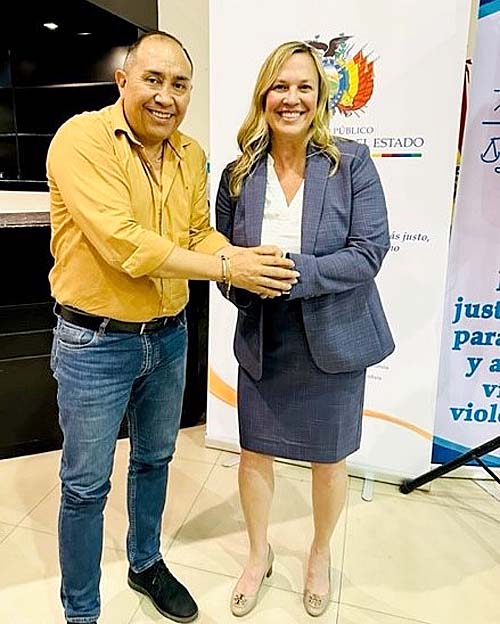
The problem for survivors in Bolivia is there has long been a false expectation of the presence of physical and medical evidence to corroborate their stories. Compounding the problem is that women and girls in Bolivia are viewed as subservient to men.
Chris Newlin, executive director of the National Children’s Advocacy Center in Huntsville, Alabama, chose ASA Schmidt from among hundreds of prosecutors in the U.S. to present at the conference. Joining them was Dr. Marcella Donaruma-Kwoh, a pediatrician at Texas Children’s Hospital in Houston and a professor of pediatrics at Baylor College of Medicine.
“Bolivia is a poor country,” Schmidt said. “It has little infrastructure, no mail delivery, the conference center had no air conditioning. (Newlin) called it a humanitarian mission. He said, ‘We need to be here.’”
The conference in Cochabamba
Organizers said about 900 judges, prosecutors, police, medical personnel, social workers and counselors from all over Bolivia registered to attend. Wilfredo Chavez, Bolivia’s attorney general, was present the conference’s first day.
ASA Schmidt spoke about child forensic interviews, sexual abuse investigations and prosecuting child sexual abuse.
“I covered everything,” she said. “Preparing a child for trial, the investigation and evidence gathering, what to do when a child discloses, trial and questioning techniques, and post-trial support.”
ASA Schmidt said the most important message she sought to convey was that a child’s word is sufficient evidence to prosecute a case. In addition, she dispelled a number of myths.
She emphasized that because young children are not easily exposed to sexualized behavior, it is highly unlikely they would concoct a story about being sexually abused. Further, few child sex abuse survivors disclose the abuse within hours or even months of when the abuse takes place, so medical evidence is rare.
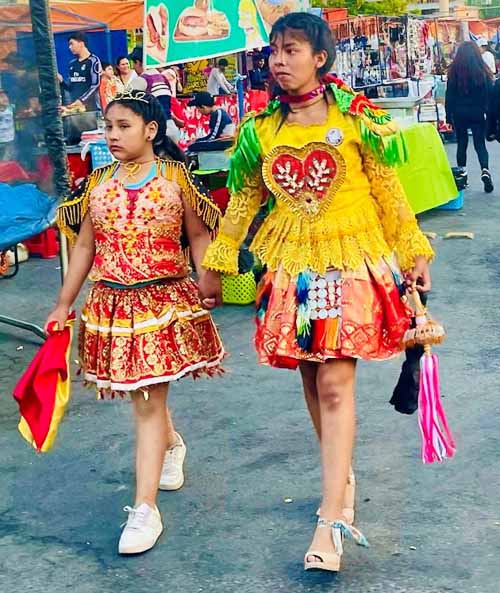
“During the conference, a doctor stood and said there would be medical findings as proof,” Schmidt said. “Someone looked up his source and saw that he was citing research from 1922.
“You don’t need medical evidence to prosecute,” she said. “You can prosecute with the child’s testimony alone. I also talked about evidence basics. For example, when a child describes the room where the abuse occurred, investigators should get photos from inside the room to corroborate their story.
“After a while, you could see in their eyes that the lights were going on,” Schmidt said. “They were getting it. I am hopeful there will be change after this.”
In an email of thanks to ASA Schmidt and Mrs. Cruz for their participation, Brisa De Angulo, one of the conference organizers, shared a Bolivian prosecutor’s words to her:
“I am so ashamed of myself. With all the information these experts have provided, I’ve suddenly realized that I have denied justice to nearly every child victim of sexual violence I’ve encountered. … I was looking for the wrong proof!! For proof that didn’t exist!! I’m going to completely change my practices from now on. I understand that the most important evidence is the testimony of the child, and I’m horrified by how I utterly devalued it for years. I will listen, investigate, and trust the children.”
De Angulo added her own thoughts:
“After the conference, it has become unmistakably clear that all of you have shattered the false premise of justice that many of these professionals had been under the delusion of operating with. … I want to make sure you two are unequivocally aware of the role you have played in setting this transformation afoot, and of our boundless appreciation …”

Mrs. Cruz is grateful for the opportunity to improve the lives of children.
“I believe the information that Lori and the others gave was impactful in ways we can’t measure,” Mrs. Cruz said. “It’s will be an uphill battle for a while, but now they know how to investigate, prosecute and provide resources. They know there is a better way to do this.”
Kane County State’s Attorney Jamie Mosser said, “I am extremely proud of the work that ASA Schmidt and coordinator Cruz do here in Kane County in protecting the most vulnerable people in our community. Both are an incredible asset to a team that investigates and prosecutes offenders who choose to harm children. I am grateful to both of them for being willing to travel to South America to share their expertise to others about how to properly deal with these cases. My thanks to both of them for their continued pursuit of justice for our Kane County community and communities elsewhere.
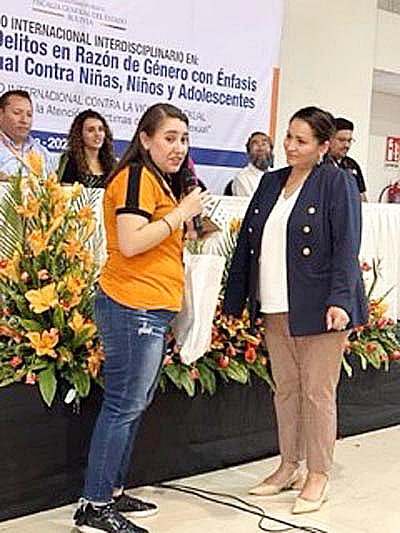
Who is Bolivian activist Brisa Be Angulo?
Brisa De Angulo, 37, was raised in Cochabamba, Bolivia, in a family that prioritized service to others. Her father was a surgeon and public health advocate and her mother was a teacher. At age 7, Brisa began tutoring children in her backyard, and at 14, she started a school as a safe alternative to the Bolivian schools where children were beaten and severely punished by teachers.
Her life changed at age 15, when she was sexually assaulted over eight months by an older cousin who was staying with her family. The aftermath has helped to define her adult life.
In 2010, a North and South American human rights group, called the Inter-American Commission of Human Rights, determined that Bolivia failed to properly investigate and prosecute her case. In 2020, the commission referred her case to the Inter-American Court of Human Rights. In January 2023, the human rights court ruled in De Angulo’s favor, finding Bolivia responsible for failing to properly address the sexual and institutional violence that De Angulo had suffered.
“The court recognized that the treatment that Bolivia gave me was cruel and inhumane,” De Angulo told The Guardian after the verdict. “This is very powerful because they are acknowledging that this treatment is cruel and inhumane. But we shouldn’t have to have an international standard to say we should be treated humanely because there are still girls that are going through this, so at least there is finally recognition.”
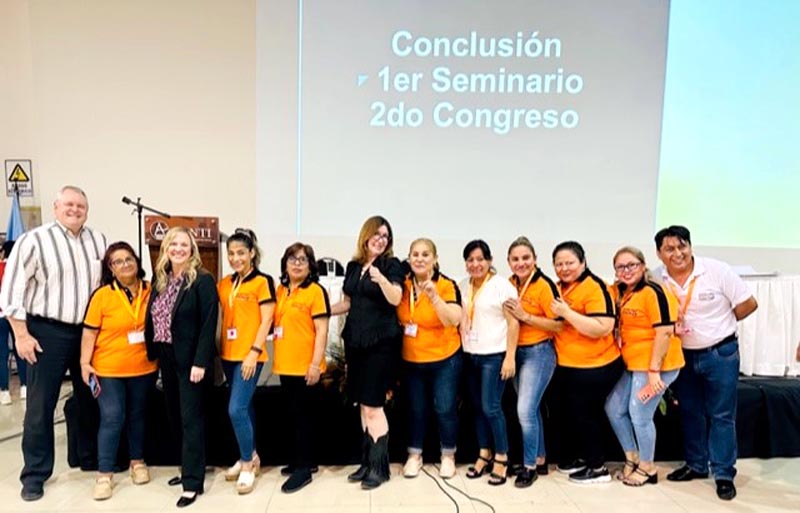
The court imposed a sentence that called for Bolivia to establish legal changes, training and prevention in comprehensive sexual education. The October conference in Cochabamba was organized as part of that sentence. According to CNN, which highlighted De Angulo in 2018 in its CNN Heroes series, Bolivia has the highest rates of sexual violence against women in South America, with seven in 10 women experiencing it in their lifetime.
“We see it a lot in Bolivia, that a woman is seen as having less value than men, and that starts even before the baby is born,” De Angulo told The Guardian. “If it’s a boy, then you’re in this culture of being more aggressive, the one who has control. If you’re a girl, then you’re this one who has to be submissive, not make problems and sit quietly. Even from a very young age, their path is already set.” In 2004 at age 17 she founded A Breeze of Hope, a nonprofit organization in Bolivia that provides free legal, social and psychological support for child survivors of sexual violence. De Angulo earned her undergraduate and Master’s degrees in the United States, and her law degree from Rutgers Law School.
— Office of the Kane County State’s Attorney Jamie L. Mosser

